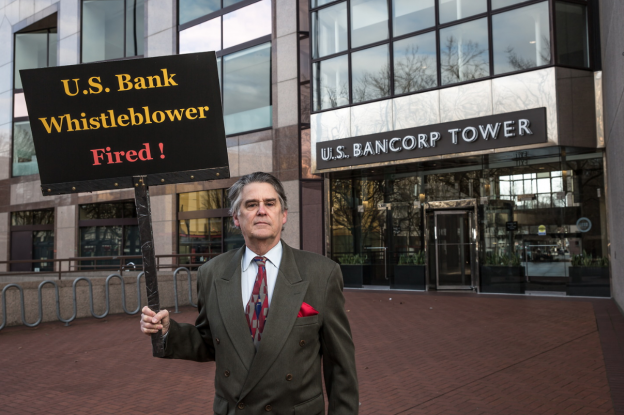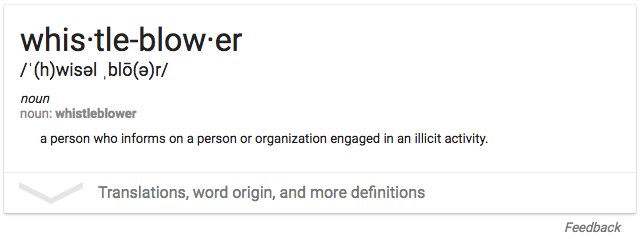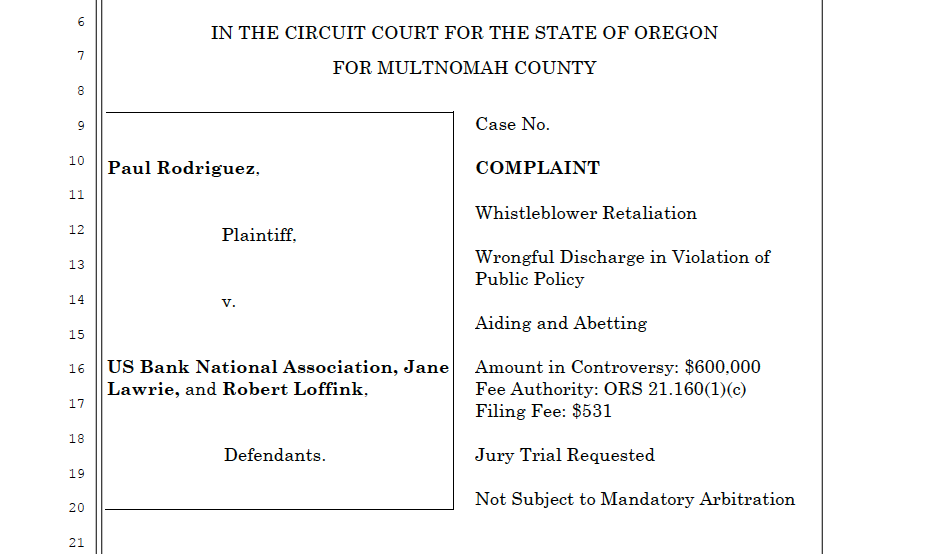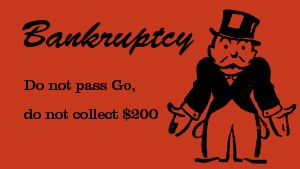By Jordan Roberts, Roberts Law Group PC
Many consumer-related disputes involve actions by an individual against a corporation or limited liability company. This provides an opportunity for attorneys representing the consumer to notice and take an entity deposition pursuant to ORCP 39C(6). Some attorneys, however, fail to understand the obligations that a 39C(6) deposition creates both for the individual’s attorney, and especially for the corporation. When used properly, a 39C(6) deposition can provide a more efficient way of information gathering for the consumer, and may even bind a corporation and prevent it from presenting certain evidence at trial if the corporation does not adequately prepare the designee being deposed.
As of the writing of this article there are no Oregon Court of Appeals or Oregon Supreme Court cases interpreting ORCP39C(6). There are, however, a number of cases interpreting FRCP 30(b)(6), the virtually identical federal counterpart to ORCP 39C(6), and those cases can offer guidance to practitioners.
Under ORCP 39C(6) a party may, in the notice and in a subpoena, name as the deponent “a public or private corporation or a partnership or association or governmental agency.” The party giving notice to the corporation to be deposed must also “describe with reasonable particularly the matters on which examination is requested.”
Giving the required notice and description then triggers the duty of the corporation to designate one or more “officers, directors, managing agents, or other persons who consent to testify on its behalf.” The person so designated “shall testify as to matters known or reasonably available to the organization.”
This differs from your typical deposition in that 1) the corporation chooses who will appear at the deposition, and 2) the deposing party must let the corporation know before the deposition what the topics of inquiry will be. In exchange for these advantages, the corporation must testify to facts and opinions beyond the personal knowledge of the person designated. They must testify to all matters “known or reasonably available to the organization,” which in the case of a corporation can be quite broad.
The designee is not giving her own opinion or testimony. Instead, the designated witness is “speaking for the corporation and this testimony must be distinguished from a mere corporate employee whose deposition is not considered that of the corporation.” United States v. Taylor, 166 FRD 356 (MDNC 1996). “If the persons designated by the corporation do not possess personal knowledge of the matters set out in the deposition notice, the corporation is obligated to prepare the designees so that they may give knowledgeable and binding answers for the corporation.” Id. This means that, even if a corporation has fired the employee(s) with personal knowledge of the situation it must actively attempt to acquire its past employee(s)’ knowledge so long as it is “reasonably available.” In addition to testifying about objective facts, the designee must also testify about the corporation’s subjective beliefs and its interpretation of documents and events. Id. at 361.
Like an individual, the corporation may testify that it “does not remember” or that it “has no position” with regards to a certain fact set or area of inquiry. However, “if a party states it has no knowledge or position as to a set of alleged facts or area of inquiry at a Rule 30(b)(6) deposition, it cannot argue for a contrary position at trial without introducing evidence explaining the reasons for the change.” Id. at 363. As such, the entity deposition can serve to “bind” the corporation to the testimony of its designee. If the corporation does not spend the necessary time to prepare its designee or to seek out information that is reasonably available to it at the time of the deposition, it may not then introduce that information at trial. Note however, that while many courts consider the testimony of the designee “binding,” other jurisdictions take a more lenient approach and allow additional evidence at trial that may explain or contradict the designee’s testimony. See, e.g., In re Puerto Rico Elec Power Auth., 687 F2d 501 (1st Cir 1982). As no Oregon case has ruled on this issue yet it is unclear which path Oregon will take.
As a practical matter, this means that every attorney taking a 39C(6) deposition should spend time asking questions that relate to the time spent preparing for the deposition including the names of any other persons the designee spoke to and efforts the designee made to contact those with the information. The designee’s responses regarding his or her preparation may prevent the corporation from offering conflicting evidence at a later time. If the designee made no attempt to contact those with the relevant information the corporation may open itself up to motions for discovery sanctions pursuant to ORCP 46D because producing an unprepared witness is tantamount to failing to appear. See, e.g., Starlight International Inc. v. Herlihy, 186 FRD 626 (D Kan 1999); United States v. Taylor, 166 FRD 356 (MDNC 1996); In re: Vitamins Antitrust Litigation, 216 FRD 168 (2003); Harris v. State of New Jersey, 2007 US Dist LEXIS 61457 (DNJ 2007). On the other hand, if the designee attempted to contact the past employee but could not because the employee had moved, changed phone numbers, or was simply refusing to work with the designee, then the corporation has likely met its burden of preparation because that employee’s knowledge was not “reasonably available.”
Although entity depositions require the attorney taking the deposition to spend additional time preparing the areas of inquiry and preparing for the deposition well in advance, one of the added benefits for consumers is that entity depositions can serve to reduce the overall number of depositions that the consumer’s attorney needs to prepare for. For example, instead of deposing each employee individually, the attorney can craft a topic of inquiry that would cover all necessary material then prepare for only a single deposition. In addition, facts that are known by the corporation cannot be shielded from the deposing side under the guise of attorney client privilege or work product. “No contention can be made that the attorney-client privilege precludes disclosures of factual information. The privilege does not protect facts communicated to an attorney. Clients cannot refuse to disclose facts which their attorneys conveyed to them and which the attorneys obtained from independent sources.” Protective Nat’l Ins. Co. of Omaha v. Commonwealth Ins. Co., 137 FRD 267 FRD 267, 278-279 (D Neb 1989).
Using an entity deposition instead of individual depositions forces corporations to provide designee(s) that have knowledge about the noticed topics. It prevents a multitude of corporate employees from disclaiming any knowledge when it is clear that someone in the corporation has relevant information. For that reason it can be particularly helpful for consumers in dealing with companies with high employee turnover such as used car lots, or collection agencies. It prevents trial by ambush by forcing corporations to do its investigations early and provide its interpretation of events. ORCP 39C(6) depositions can also help consumers who often bring cases on a limited budget. While the attorneys on both sides must do more work to prepare for and take a 39C(6) deposition it is possible to cover in a single deposition with a single court reporter fee, a wide range of issues that might otherwise require multiple depositions, multiple court reporters, and multiple transcripts.
As one judge succinctly explained: “the burden upon the responding party, to prepare a knowledgeable Rule 30(b)(6) witness, may be an onerous one, but we are not aware of any less onerous means of assuring that the position of a corporation that is involved in litigation, can be fully and fairly explored.” Prokosch v. Catalina Lightning, Inc., 193 FRD 633, 638 (D Minn 2000).
When appropriate, consumers and their attorneys would be wise to take advantage of the benefits of using an entity deposition rather than a multitude of individual depositions.










